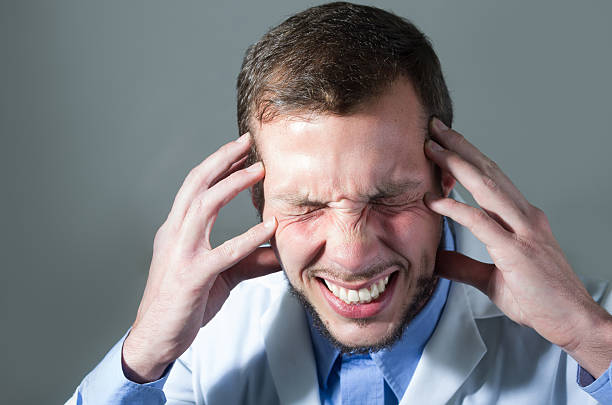Unlocking the Mystery of Muffled Hearing: Causes, Symptoms, and Remedies
Have you ever experienced the sensation of sounds being muffled or distant, as if you're underwater or your ears are stuffed with cotton? If so, you're not alone. Muffled hearing, also known as conductive hearing loss, can be a perplexing and frustrating experience, affecting individuals of all ages. In this article, we'll delve into the various causes, symptoms, and remedies for muffled hearing, shedding light on this often misunderstood condition.
Understanding Muffled Hearing
Muffled hearing occurs when sound waves cannot travel efficiently through the outer or middle ear to reach the inner ear, where they are processed into signals that the brain interprets as sound. This can lead to a reduction in the clarity and volume of sounds, making it challenging to understand speech or perceive noises accurately.
Common Causes of Muffled Hearing
1. Ear Infections:
- Acute or chronic infections of the middle ear can cause inflammation and fluid buildup, resulting in muffled hearing. This is particularly common in children but can also affect adults.
2. Earwax Buildup:
- Excessive earwax accumulation can block the ear canal, hindering the passage of sound waves and causing muffled hearing. This is often a result of improper ear hygiene or the use of cotton swabs, which can push wax deeper into the ear canal.
3. Eustachian Tube Dysfunction:
- The Eustachian tube connects the middle ear to the back of the nose and throat, helping to equalize air pressure and drain fluid. Dysfunction of this tube can lead to pressure imbalances and fluid accumulation, resulting in muffled hearing.
4. Otosclerosis:
- Otosclerosis is a condition characterized by abnormal bone growth in the middle ear, which can interfere with the transmission of sound waves and cause muffled hearing. It typically affects the stapes bone, one of the tiny bones in the middle ear responsible for conducting sound vibrations.
5. Perforated Eardrum:
- A perforated eardrum, whether due to injury, infection, or other factors, can disrupt the normal functioning of the middle ear and lead to muffled hearing. In some cases, the hearing loss may be temporary, while in others, it may require medical intervention.
Symptoms of Muffled Hearing
The symptoms of muffled hearing can vary depending on the underlying cause and severity of the condition. Common signs include:
- Difficulty understanding speech, especially in noisy environments
- Sensation of fullness or pressure in the ears
- Ringing or buzzing sounds (tinnitus)
- Discomfort or pain in the ears
- Dizziness or balance problems
If you experience any of these symptoms persistently, it's important to seek medical evaluation to determine the cause of your muffled hearing and receive appropriate treatment.
Remedies and Treatment Options
The treatment for muffled hearing depends on the underlying cause. In some cases, the condition may resolve on its own or with simple home remedies, while in others, medical intervention may be necessary. Here are some common treatment options:
1. Earwax Removal:
- If earwax buildup is causing muffled hearing, a healthcare professional can safely remove the excess wax using specialized tools or irrigation techniques.
2. Antibiotics or Antifungal Medications:
- Ear infections may require treatment with antibiotics or antifungal medications to clear the infection and reduce inflammation.
3. Decongestants or Nasal Steroids:
- Eustachian tube dysfunction can often be relieved with decongestants or nasal steroids to reduce congestion and improve ventilation of the middle ear.
4. Surgical Intervention:
- In cases of otosclerosis or a perforated eardrum, surgical procedures such as stapedectomy or tympanoplasty may be recommended to restore hearing function.
5. Hearing Aids:
- For individuals with permanent hearing loss, hearing aids can help amplify sounds and improve clarity, making it easier to communicate and engage in daily activities.
Preventative Measures
While not all cases of muffled hearing can be prevented, there are steps you can take to minimize your risk:
- Practice good ear hygiene by avoiding the use of cotton swabs and using earplugs or earmuffs in noisy environments.
- Seek prompt treatment for ear infections or other ear-related conditions to prevent complications.
- Avoid exposing your ears to loud noises for extended periods, and use hearing protection when necessary.
Conclusion
Muffled hearing can have a significant impact on your quality of life, affecting your ability to communicate, work, and enjoy social activities. By understanding the causes, symptoms, and treatment options for this condition, you can take proactive steps to protect your hearing health and address any issues that arise promptly. If you're experiencing muffled hearing or any related symptoms, don't hesitate to consult with a healthcare professional for personalized evaluation and management. Your ears are precious, so take care of them – and they'll continue to serve you well for years to come. Click Here




Comments
Post a Comment